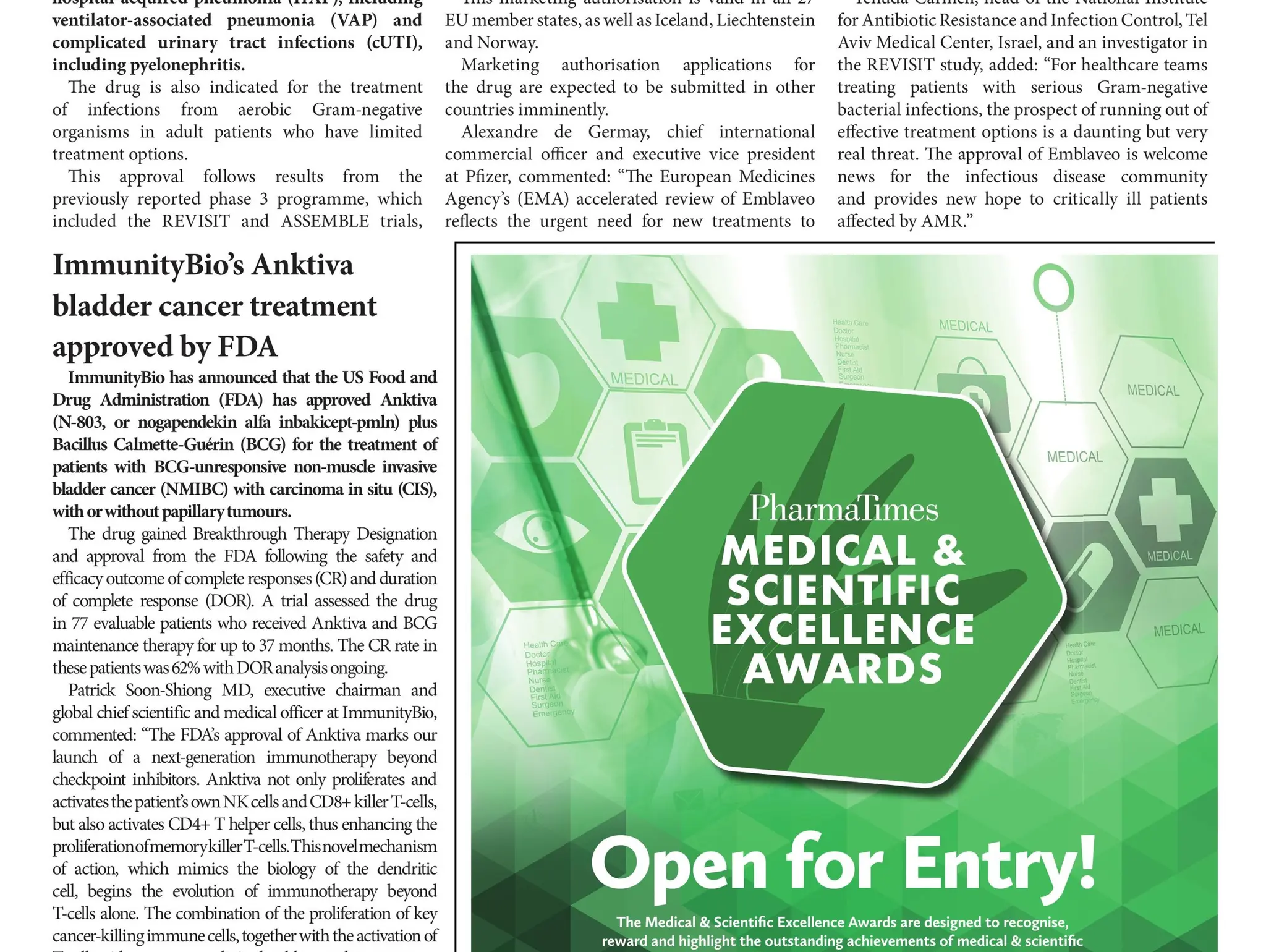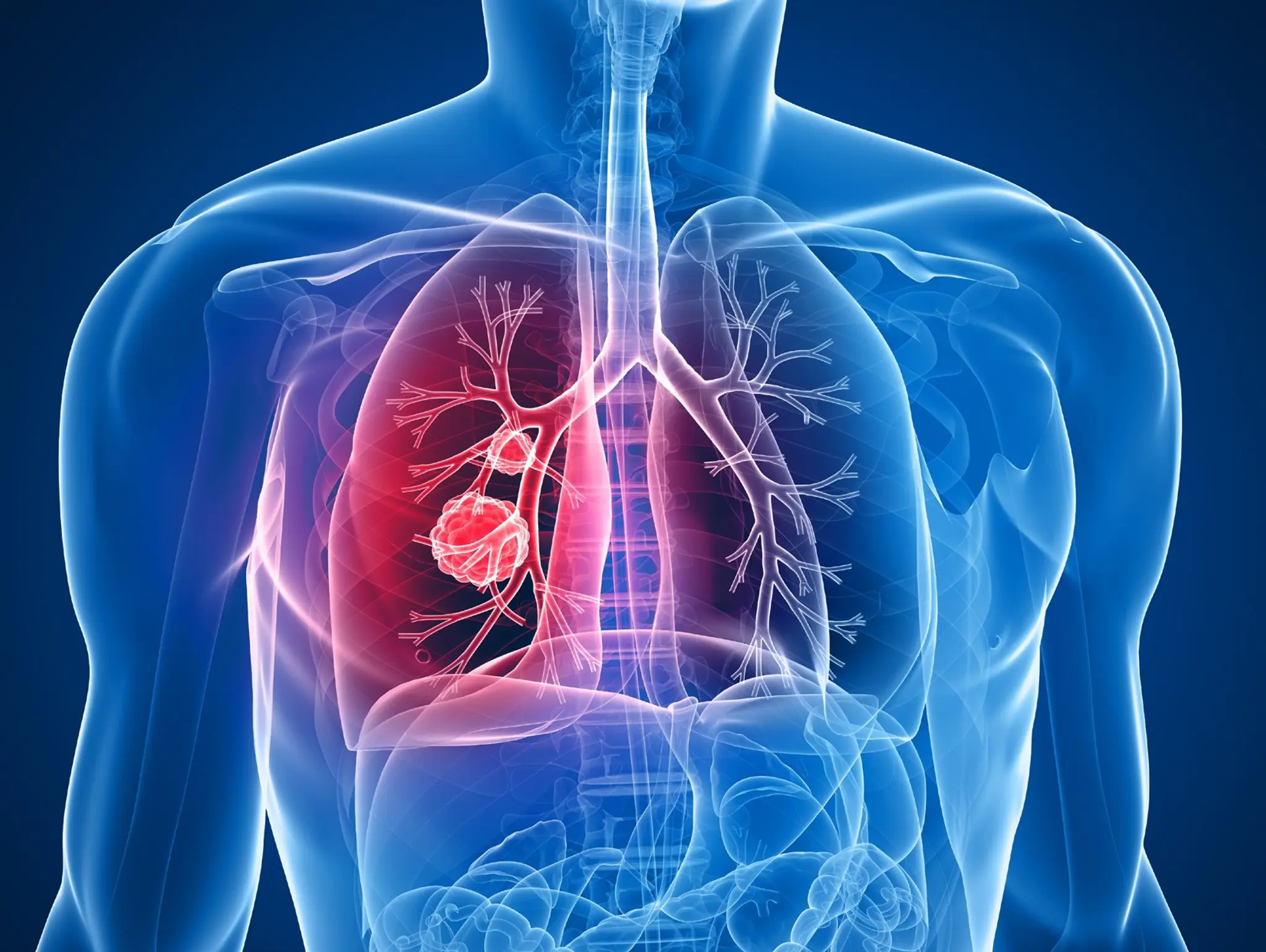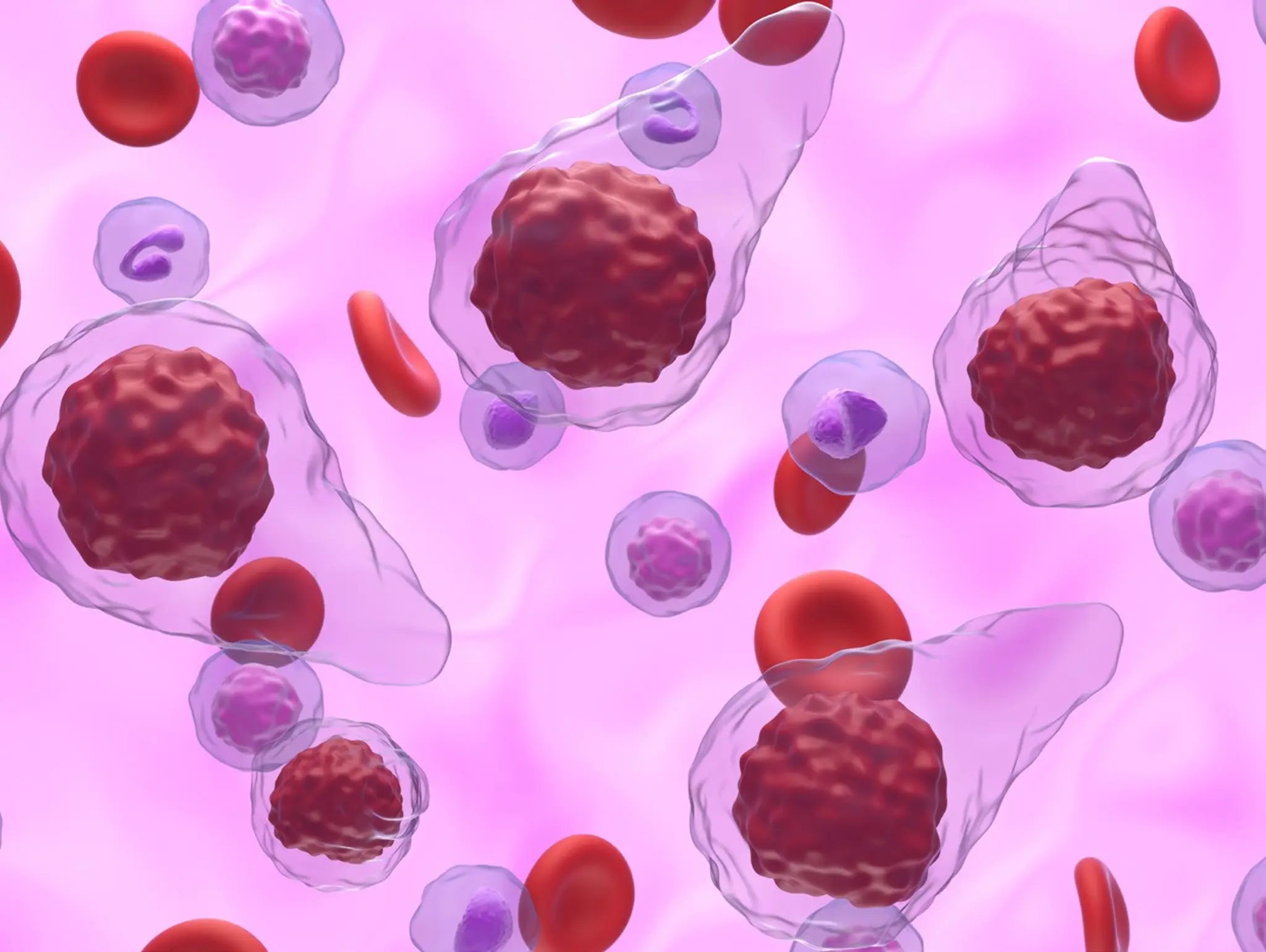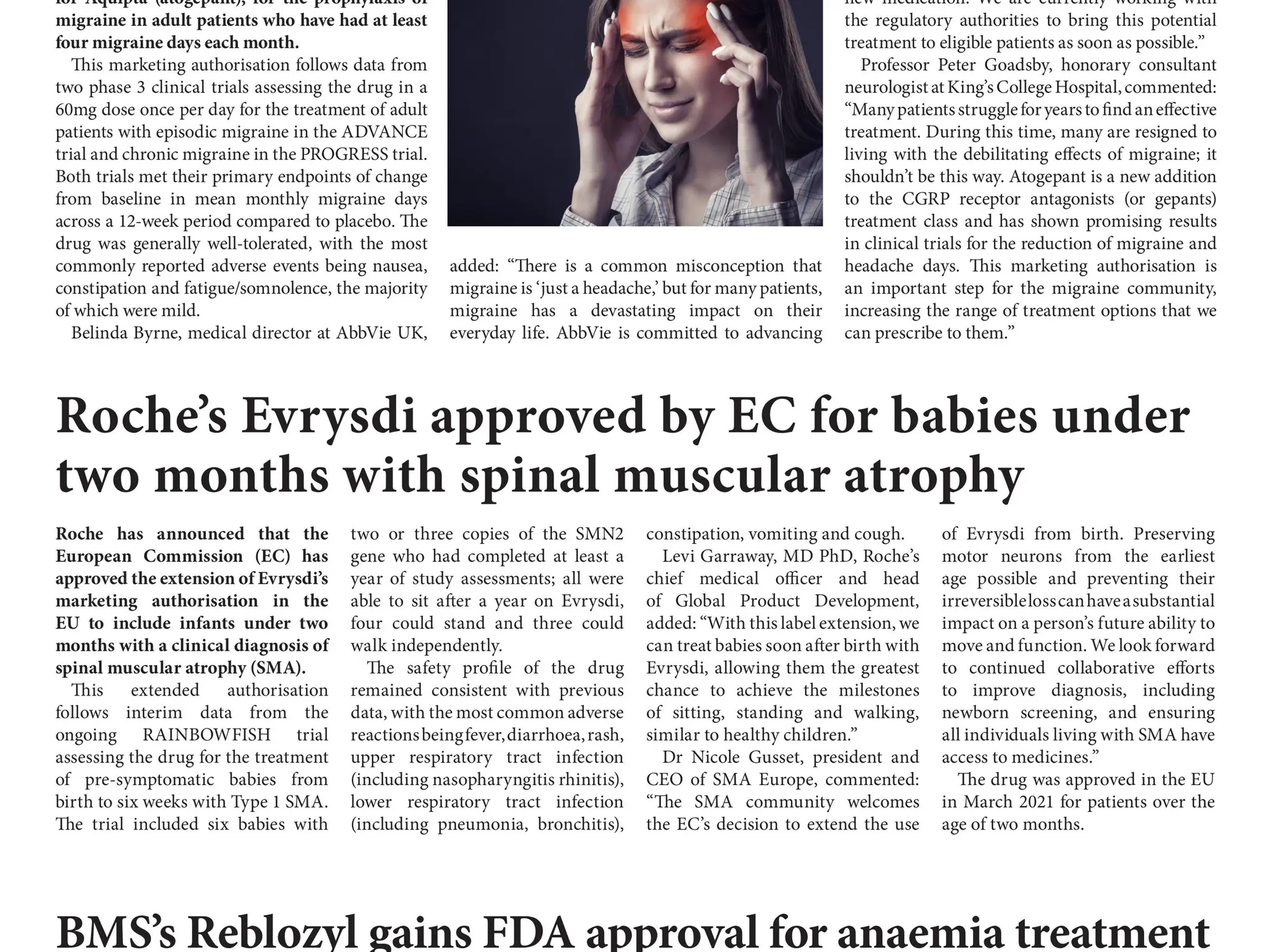
Europe
The latest European Pharmaceutical industry news
Articles

AstraZeneca has announced that the EC has approved Tagrisso (osimertinib), with the addition of pemetrexed and platinum-based chemotherapy, for the first-line treatment of adult patients with advanced epidermal growth factor receptor-mutated non-small cell lung cancer whose tumours have exon 19 deletions or exon 21 mutations.

Oxolife has announced positive phase 2 clinical data on its fertility pill OXO-001 at the European Society of Human Reproduction and Embryology (ESHRE) 40th annual meeting, which was held in Amsterdam, the Netherlands.

AbbVie has announced that the EMA's CHMP has granted a positive opinion to Tepkinly (epcoritamab), recommending the conditional marketing authorisation of the drug as a monotherapy treatment for adult patients with relapsed or refractory (r/r) follicular lymphoma (fl).

Janssen, a Johnson & Johnson company, has announced that the CHMP of the EMA has recommended Rybrevant (amivantamab) in combination with chemotherapy.

Pfizer has announced that the EC has granted marketing authorisation for Emblaveo (aztreonam-avibactam) for the treatment of adult patients with complicated intra-abdominal infections (ciai), hospital-acquired pneumonia (hap), including ventilator-associated pneumonia (vap) and complicated urinary tract infections (cuti), including pyelonephritis.

AstraZeneca has announced that the European Medicines Agency (EMA) has validated two marketing authorisation applications (MAAs) for AstraZeneca and Daiichi Sankyo’s datopotamab deruxtecan (dato-dxd) in the treatment of two cancers.

Novo Nordisk has announced that the European Medicines Agency’s (EMA) Committee for Medicinal Products for Human Use (CHMP) has recommended marketing authorisation for Awiqli (once-daily basal insulin icodec) for the treatment of diabetes in adult patients.

Pfizer has announced that the EC has granted marketing authorisation for Velsipity (etrasimod) in the EU.

Vertex Pharmaceuticals has announced that the European Commission (EC) has granted conditional marketing authorisation to Casgevy (exagamglogene autotemcel), a crispr/cas9 gene-edited therapy.

GSK has announced that the CHMP of the EMA has given a positive recommendation to the company’s momelotinib for patients with myelofibrosis.

Daiichi Sankyo has announced that Vanflyta (quizartinib) has been approved in the EU for combination use with standard cytarabine and anthracycline induction and standard cytarabine consolidation chemotherapy for adult patients with newly diagnosed acute myeloid leukaemia that is flt3-itd positive.

Roche has announced that the EC has approved the extension of Evrysdi’s marketing authorisation in the EU to include infants under two months with a clinical diagnosis of spinal muscular atrophy (SMA).